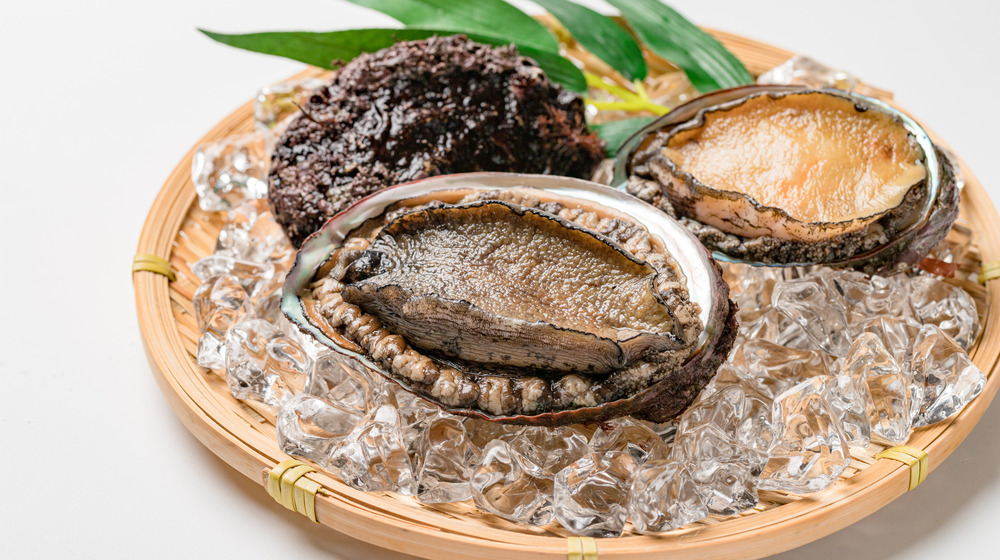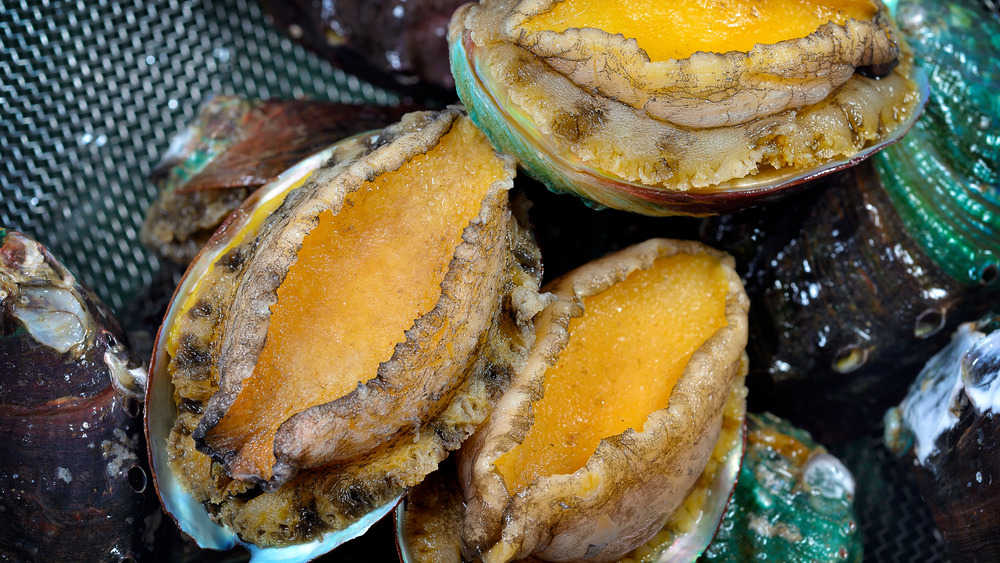The Real Reason Abalone Is So Expensive
Have you ever eaten abalone? In some countries, such as China and Japan, this sea snail is part of culture and tradition and makes appearances at specific times of the year, such as New Year's, as well as on high-end restaurant menus. Food Republic describes these mollusks as "right between a scallop and squid with a crunchiness similar to conch but closest to the sensation you get eating jellyfish." Whether you've tasted abalone or not, there's no denying that it's an expensive delicacy.
Dining on abalone likely means you're spending some hard-earned cash, or someone else is on your behalf. It may be strange to think that a sea snail could be expensive, but there are various factors that make this so, including overfishing in the 20th century, which almost made them go extinct and is the main reason why wild abalone is almost nonexistent, according to Food Republic. Also, fishing for abalone is a bit complex because you can't just put out a big net and expect a fabulous catch.
Abalone isn't easy to find or harvest
This is where getting abalone from the sea to your plate gets tricky and comes with lots of dollar signs. Not only is the meat of the abalone considered a delicacy, but the shell is considered special, too. Once polished, the shell will have an iridescent mother of pearl coloring and can be used as a decorative piece at home. Abalone live on rocks and very firmly attach themselves to whatever rocky surface they can, which makes it a challenge to harvest them. Plus, the shell's natural grayish color easily blends into the sea snails' habitat, making it complicated for divers to find them.
According to AzureAzure, "removing abalone is extremely difficult, and requires time, skill and dedication." Those who are brave enough to put themselves in less-than-favorable conditions and have the ability and interest to find and harvest abalone need to be compensated appropriately for their hard work, making the price naturally a lot higher than other, more easily caught seafood.

